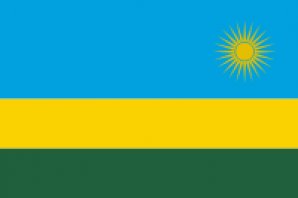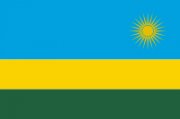ID : SHA4582214
National Unity and Reconciliation Commission
National Unity and Reconciliation Commission
National Unity and Reconciliation Commission


-
Name of the business / organization :National Unity and Reconciliation Commission
-
Country :Rwanda
-
Province :City of Kigali
-
District :Gasabo
-
P.O. Box and City :174, Kigali, Rwanda
-
Fixed telephone 1 :+250 252 571 761
-
Fax 1 :+250 252 571 759
-
Email 1 :
-
Web site :
-
Business / Organization Brief Description :The National Unity and Reconciliation Commission (NURC) is a national institution, provided for by the National Constitution adopted by Rwandans in June 2003.
The idea of establishing a commission for national unity and reconciliation was first thought of by the Arusha Peace Accord signed in 1993. The main objective for such a commission was to assist the government of national unity then anticipated, to foster unity and reconciliation among the people of Rwanda who had experienced long periods of bad governance characterized by divisions, discriminations, human rights abuse and acts of violence.
After the tragic Genocide of 1994, the establishment of the National Unity and Reconciliation Commission was made even more necessary. In March 1999, by the law Nº03/99 of 12/03/99, the Government of National Unity established the National Unity and Reconciliation Commission with the responsibility of using all available means to mobilize and sensitize Rwandans for this noble task.
Structure of the National Unity and Reconciliation Commission
The Commission is made up of a Board of 12 Commissioners drown from all levels of society, and it meets regularly to evaluate and give orientation on the day to day work of the Executive Secretariat.
The Executive Secretariat headed by an Executive Secretary,
plans and implements short and long term activities of the
Commission through the following Programs:
Administration and Finance
Civic Education
Peace building and Conflict Management -
Products & Services :MISSION
According to the Constitution of the Republic of Rwanda, the mission of the National Unity and Reconciliation Commission include particularly the following:
Preparing and coordinating the national programs for the promotion of national unity and reconciliation;
Putting in place and developing ways and means to restore and consolidate unity and reconciliation among Rwandans;
Educating and mobilizing the population on matters relating to national unity and reconciliation;
Carrying out research, organizing debates, disseminating ideas and making publications relating to peace, national unity and reconciliation;
Making proposals on measures that can eradicate divisions among Rwandans and to reinforce national unity and reconciliation;
Denouncing and fighting against acts, writings and utterances which are intended to promote any kind of discrimination, intolerance or xenophobia;
Making an annual report and such other reports as may be necessary on the situation of national unity and reconciliation.
Monitor how public institutions,leaders and the populatio in general comply with the National Unity and reconciliation policy and principles.
login
- Public service (140)
- Hotels & accommodation (335)
- Restaurants, Bars, Cafés & Leisure (470)
- Travel, Tourism & Transport (203)
- Banking, Insurance & Finance (79)
- Lawyers, Legal Exeprts & Notaries (54)
- Professional Services (281)
-
- Audit, Accounting, Tax & Consulting Firms(28)
- External auditors (individual)(31)
- Accountants(9)
- Tax consultants(28)
- Internal & management control(0)
- Finance consultants(8)
- Strategy consultants(2)
- Management consultants(5)
- Business development consultants(6)
- Civil engineering consultants(22)
- Marketing & Advertising(12)
- Express & postal mail(1)
- Customs clearing agents(2)
- Graphic designers(32)
- Designers(1)
- IT consultants & specialists(20)
- Web designers, software developers, programmers & IT specialists(5)
- Printing offices and Photocopying(28)
- Public secretariat(9)
- Moving / removal contractors(27)
- Trade Associations (6)
- Health (297)
- Education - Public (63)
- Education - Private (70)
- Beauty and Wellness (282)
- Ceremonies, Parties and Events (156)
-
- Wedding (related items & services)(21)
- Halls & sites for meetings, receptions & parties(15)
- Tents , chairs & decoration material rental(93)
- Sound system equipments rental(9)
- Ceremony, event & traditional clothes / costumes rental(1)
- Wedding and event planners(4)
- MC (Masters of Cermonies)(2)
- Abakwe Bakuru & Abavuga Imisango(0)
- Traditional dance companies(4)
- Catering(0)
- Cooking chefs at home(0)
- Other reception, party and event equipments rental(0)
- Mobile toilets(1)
- Shopping, Clothing, Shoes, Jewelry & Accessories (337)
-
- Shopping centers & malls(2)
- Clothing, shoes & accessories stores - All(171)
- Clothing, shoes & accessories stores - Ladies(3)
- Clothing, shoes & accessories stores - Men(0)
- Clothing, shoes & accessories stores - Kids(14)
- Jewelry(28)
- Shoes shops(11)
- Working clothes - making & sale(2)
- Textile / cloth printing & embroidery(8)
- Clothing fabrics(4)
- Tailors & fashion designers(87)
- Home, Office & Shop Furniture, Equipments, Decoration & Accessories (218)
- Computers, Telephones, Sound, Television, Internet, Electronics & other ICT (181)
- Food and Beverages (270)
- Craft Industry (84)
- Arts, Culture & Entertainment (100)
-
- Singer artists(0)
- Musical instrument players(0)
- Songwriters(0)
- Music producers & recording studios(2)
- Music schools and teachers(0)
- Live music bands(0)
- Non religious choirs(0)
- DJ (Disc Jockeys)(0)
- Traditional music(0)
- Movie script writers(0)
- Movie / film producers(3)
- Movie actors(0)
- Film / movie directors(0)
- Photographers, Cameramen, Photo & Video Studios(34)
- Cinema studios(0)
- Cinemas / movie theaters(0)
- Cinema and photo schools(0)
- Playwrighters(0)
- Playwright producers(0)
- Stage actors(0)
- Stage directors(0)
- Theater companies(0)
- Stage arts schools(0)
- Dancing lessons & schools(0)
- Theater, show, concert halls, rooms & sites(0)
- Comedy artists(0)
- Painting artists(0)
- Sculptor artists(0)
- Pastic arts schools(0)
- Artists managers(0)
- Art galleries(20)
- Edition & Publishing(3)
- Newspapers & Magazines(10)
- Journalists(0)
- Radio & television stations(16)
- Radio & television shows producers & presenters(0)
- Writers(0)
- Bookshops(5)
- Libraries(5)
- Museums(0)
- Construction, Real Estate & House (353)
-
- Construction companies / contractors(10)
- Real estate promoters / developers(2)
- Real estate offices(0)
- Architects(7)
- Construction engineers(2)
- Land surveyors & topographers(2)
- Quantity surveyors(0)
- Construction site coordinators(0)
- Building maintenance(0)
- Property managers(4)
- Real property valuers & real estate consultants(44)
- Real estate brokers and commissionnaires(7)
- Hardware stores(224)
- Brics, cement blocs, concrete, sand, etc.(11)
- Air conditioning(2)
- Elevators & escalators(0)
- Glasses and window panes(2)
- Frames & carpenters(0)
- Doors and windows(0)
- Electricians(2)
- Plumbers(3)
- Builders / bricklayers(0)
- Welders(0)
- House painters(0)
- Joiners(0)
- Helpers in manual works(0)
- Gardeners(0)
- Paints dealers(20)
- Energy, Water, Environment & Nature (10)
- Security & Safety (3)
- Hygiene (56)
- Sports & Leisure (40)
- Cars, Motorbikes & Bikes (129)
-
- New cars sale(3)
- Used cars sale(0)
- Garages(24)
- Mechanics(0)
- Electro-mechanics(3)
- Car body repairers(0)
- Car painting(0)
- Car spare parts(54)
- Car rental - classic(3)
- Car rental - ceremonies & limousines(1)
- Trucks rental(3)
- Driving schools(25)
- Cars commissionnaires & brokers(0)
- Bikes & accessories stores(1)
- Tires sale & repair(10)
- Gasoline, diesel, bottled gas & other fuels(0)
- Factories, Workshops & Manufacturers (38)
- Agriculture (45)
- Animals & Breeding (47)
- Civil Associations & Society (6)
- Religion & Spirituality (11)
- NGOs (Non-Governmental Organizations) (2)
- Embassies & Cooperation (13)
- International organizations (19)
- Other category (22)




 Rwanda
Rwanda 
 10050
10050








